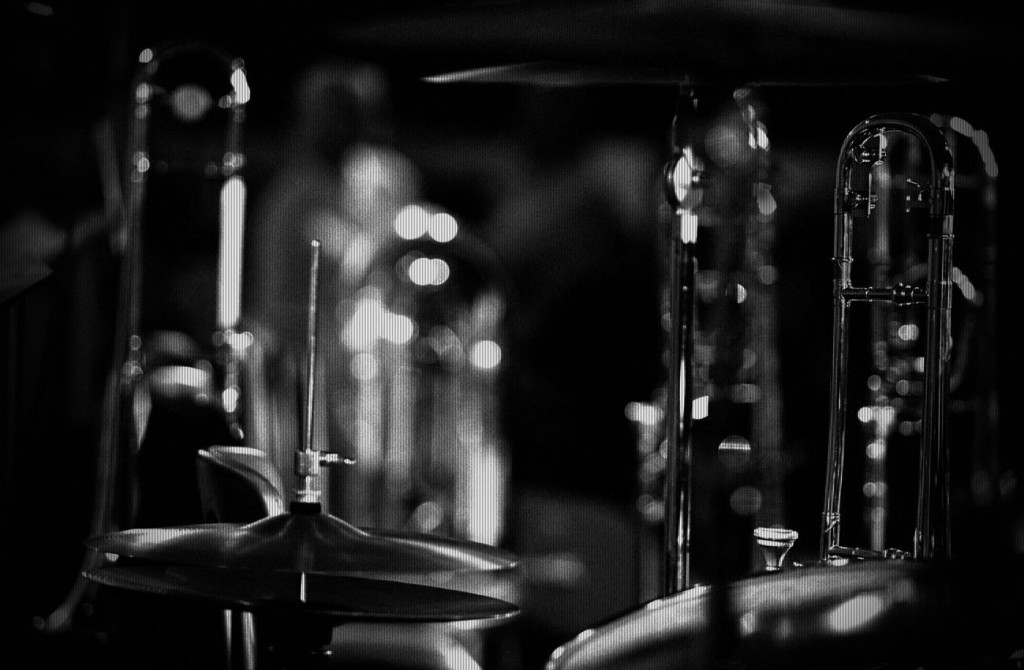Tune in to the Jazz Show with Gavin Walker every Monday night,
9pm-Midnight.
April 2:
Tonight we begin a new series of Jazz Features for April and we’ll be looking at a group of recordings that were all made in the early 1970s that reflected some very important changes in Jazz, how it sounded and how it was quickly absorbing new influences and introducing new instruments to the mix. The critics invented a catch-phrase and called it “Jazz Fusion”. The players avoided this phrase and just called their music Contemporary Jazz. Elements from world music, classical and rock were being absorbed into the new music and Miles Davis was one of the major pioneers in the development of these then new concepts and he heads off the list of Jazz Features tonight. We will listen to a concert set (unedited) from Davis’ legendary appearance at New York’s Fillmore East. Gone were the standard tunes, three-piece suits and straight 4/4 time. Miles is heard on open trumpet with a young 19 year old Steve Grossman in tenor and soprano saxophones. Keith Jarrett and Chick Corea on various electric keyboards, Dave Holland on bass, Jack DeJohnette on drums and Airto Moreira on percussion. The music is all segued and directed by Mr. Davis and it ranges from funky to contemplative, to all-out free form like an amazing symphony. Miles at Fillmore East June 19,1970.
April 9th:
A direct offshoot of Miles Davis’ concepts was the band “Weather Report”. It was one of the most influential and iconic bands of the 70s. Wayne Shorter on tenor and soprano saxophones, Joe Zawinul on a variety of keyboards and synthesizers and acoustic piano were the co-founders of this band. On bass was their original bassist from Prague, Miroslav Vitous. On drums was Eric Gravatt and Dom Um Romao on percussion. We’ll hear a set recorded during Weather Report’s early years in Tokyo that has never been heard in it’s complete form in January 1972.
April 16th:
From the busy intensity of Miles Davis and Weather Report tonight’s Jazz Feature is quite a contrast. Mixing a classical and Brazilian influence, electric pianist Chick Corea formed “Return To Forever” with flutist/soprano saxophonist Joe Farrell, virtuoso acoustic and electric bassist, Stanley Clarke, vocalist Flora Purim who also plays percussion and her husband Airto Moreira on drums and percussion. The music is light and lyrical but deep. “Return to Forever” is a modern classic and all of the music was written by Chick Corea.
April 23th:
Pianist/composer Herbie Hancock’s band is up next and this legendary group contained some amazing players including Eddie Henderson (Mganga) on trumpet, Bennie Maupin (Mwile) on bass clarinet and alto flute, Julian Priester (Pepo Mtoto) on trombones, Buster Williams (Mchezaji) on acoustic and electric bass, Billy Hart (Jabali) on drums plus some guests. You will note that the band adopted African tribal names as did Herbie Hancock who became Mwandishi. The album is also called “Mwandishi” contains 3 long compositions and the interplay and textures that this band achieved were nothing short of magical. This album represents a special period in Herbie Hancock’s formidable career and and a musical milestone.
April 30:
Bassist Dave Holland has had a very long career after emigrating from Britain to join Miles Davis in 1969 and this album entitled “Conference of the Birds” is one of his masterpieces. The musical chemistry and the coherence is uncanny and it too bad this band didn’t tour but only made this one album. Two adventurous reed and flute masters blend here. Sam Rivers is heard on flute and soprano and tenor saxophones and Anthony Braxton is heard on flute,clarinet and alto saxophone. The great Barry Alschul is on drums. All the compositions are by Dave Holland. The music here represents focused free-form Jazz of the highest order.

